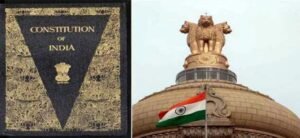Capital Punishment in India to Retain or Abolish
Written By: Nikita Mandal
Capital Punishment:
Capital Punishment is also known as the death penalty, execution of an offender sentenced to death after conviction of a criminal offence by a court of law. Indian Criminal justice system is one of the important parts of capital punishment.
Introduction:
The death penalty has been the subject of controversy for centuries. As of November 2015, nearly two-thirds of the world’s countries have abolished the death penalty in law or practice. India is not one of them. After the execution of Dhananjay Chatterjee in 2004, the bodyguard convicted of raping and murdering a teenager, India held an unofficial moratorium for eight years.
Ajmal Kasab was hanged in 2002 – the only surviving terrorist from the 2008 Mumbai attacks. Afzal Guru and then Yakub Memon was executed. According to Amnesty International, Indian courts have sentenced at least 644 people to death in 2014, but no executions have taken place.
Under the Indian penal code, murder, rape with injuries, re-offending, waging war against the state, engaging in terrorist activities, are some of the major crimes punishable by death.
Process:
After the completion of proceedings as prescribed by the Code of Criminal Procedure, the judge pronounces the judgment in a case under Section 235. In case of conviction of the accused, there shall be a mandatory pre-sentencing hearing as according to Section 235(2), Code of Criminal Procedure.
The Code of Criminal Procedure, 1973, also contains a provision regarding a special reason for a death sentence. Section 354(3) of the Code provides that the court must record “Special reasons” justifying the sentence and state as to why an alternative sentence would not meet the ends of justice in the case, according to the principle ‘Life imprisonment is the rule and death sentence is the exception.
Constitutionality of the death penalty:
Ahead of the Indian Supreme Court’s inquiry, the 35th Law Commission’s report examined the abolition of the death penalty in India in response to a motion passed by Lok Sabha member Raghunath Singh. The Law Commission of India argued that the terms of India contradicted the proposal to abolish the death penalty and decided that the death penalty should be upheld.
It said that diversity of upbringing, diversity of the population, inequality in education and morality level, and the universal need for law and order were the main reasons and that prevented India from taking a favourable position to abolish the death penalty. However, according to the judgment of the Supreme Court of India, the rule of law relating to the death penalty has changed dramatically in various convictions.
Case law:
Mithu v State of Punjab, April 1983
In this case, the court discussed Section 303 of the IPC which provided for a mandatory death sentence for offenders serving a life sentence. This section was based on the logic that any criminal who has been convicted for life and still can kill someone is beyond reformation and so, the only suitable punishment left would be death.
It was discussed that the original idea behind the drafting of this section was to discourage assaults by life convicts on the prison staff, but the language chosen by the legislature had widely exceeded its intention. It was held that Section 303 violated the right to equality and the right to life and personal liberty as conferred under Articles 14 and 21 of the Constitution.
Sexual violence and calls for the death penalty:
Nirbhaya and justice:
The infamous and brutal gang rape case also known as the Nirbhaya rape case brought the issue of sexual violence to the notice of the public, media, and the Government of India. Responding to the protests and campaigns the government formed a committee headed by former Chief Justice of India, Justice J.S. Verma, Justice Leila Seth, and Mr Gopal Subramanium, former Solicitor General of India.
The Committee submitted its report on 23 January 2013. It made recommendations on laws related to rape, sexual harassment, trafficking, child sexual abuse, medical examination of victims, police, electoral and educational reforms. The committee did not recommend the death sentence for sexual offences. The committee proposed “life imprisonment for the remainder of the convict’s natural life” as the punishment for repeat offenders.
Which category of offenders are excluded from Capital Punishment:
- Minor:
According to the law in India, a minor who is under the age of 18 at the time of committing a crime is not executed.
- Pregnant Women:
Clemency must be granted to a pregnant woman sentenced to death according to a 2009 amendment.
- Intellectually Disabled:
According to the Indian Penal Code, a person while committing a crime who was mentally ill or is not able to understand the nature of the act or the act is wrong, then that person can be held liable under the law and can be punished with the death penalty.
Conclusion:
This is a controversial issue related to the social and moral aspects. The court extended the scope of the “alternative option” to exhaust the pre-death penalty. We can carry out the death penalty by maintaining the death penalty and proving our innocence.
Previous Blogs
Human Rights of LGBTQ and Role of NGOs in India




